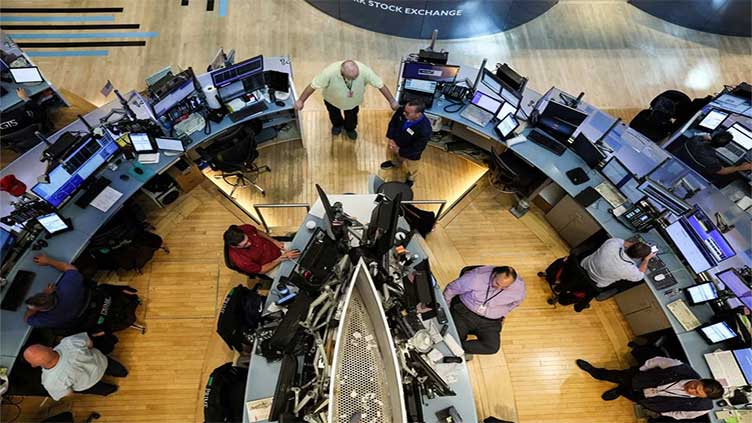Wall Street drifts after some Big Tech gains make up for Tesla's slump

Business
Wall Street drifts after some Big Tech gains make up for Tesla’s slump
NEW YORK (AP) — U.S. stocks are drifting Monday as the constrictor of higher interest rates tightens its coils around Wall Street.
The S&P 500 was virtually unchanged in early trading, coming off its worst month of the year. The Dow Jones Industrial Average was down 17 points, or 0.1%, at 33,490, as of 9:35 a.m. Eastern time, and the Nasdaq composite was 0.3% higher.
Tesla was one of the heaviest weights on the market and slumped 1.5% after it said it delivered fewer vehicles during the summer than analysts expected. The majority of stocks fell alongside it, but gains for Apple and some other Big Tech stocks helped to limit the market’s losses.
Stocks have broadly given back about 40% of their strong gains for the year since the end of July. The main reason is Wall Street’s growing acceptance that high interest rates are here to stay a while as the Federal Reserve tries to knock high inflation lower. That in turn has pushed Treasury yields to their highest levels in more than a decade, which makes investors less willing to pay high prices for stocks and other investments.
The yield on the 10-year Treasury climbed again Monday, up to 4.63% from 4.58% late Friday, and is near its highest level since 2007.
High yields hit stocks in several ways. They send more investors to bonds that are paying much more than in the past, which pulls dollars away from stocks and undercuts their prices. They also make borrowing more expensive for companies and their customers, which can pressure their profits.
Strategists at Goldman Sachs say such elevated borrowing costs are potentially the key risk for profitability among companies in the S&P 500.
The U.S. dollar’s value has also been climbing against other currencies around the world after the Federal Reserve said it will likely cut interest rates by less next year than it earlier expected. It’s already pulled its main interest rate to the highest level since 2001.
A strong dollar gives a boost to U.S. tourists spending money abroad, but it hurts U.S. companies that sell their products overseas. And for the big companies in the S&P 500 index, that means a huge chunk of revenue.
“If higher-for-longer rates keep the dollar at recent levels, corporate profits will face a genuine headwind,” according to Lisa Shalett, chief investment officer at Morgan Stanley Wealth Management.
Crude oil prices ticked higher, adding a bit more pressure on inflation and the Federal Reserve to stay tough on interest rates.
A barrel of U.S. crude rose 0.1% to $90.85, and it’s up sharply from about $70 during the summer. Brent crude, the international standard, gained 0.4%, to $92.53.
Congress over the weekend avoided a shutdown of the federal government, which threatened to hurt the economy and disrupt the publication of economic data Wall Street finds crucial. But Capitol Hill only temporarily delayed the threat, promising another showdown. Plus, traders are well aware the stock market has held up rather well through past shutdowns.
In stock markets abroad, indexes were lower across much of Europe.
In Asia, Japan’s Nikkei 225 slipped 0.3% despite a survey from the central bank showed business confidence is on the rise.

